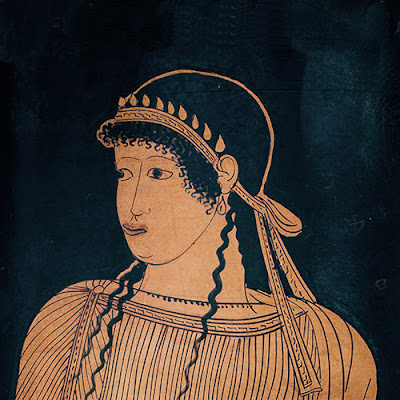For Tuesday, read the poems on pages 5-29 of our book, Stung With Love, the complete poems of Sappho. These poems can be tricky to read since almost none of them are complete: most have been damaged, lost, or destroyed (more on that in class on Tuesday). Only ONE complete poem is in this book, the famous one on page 9, where she talks directly to Aphrodite.
So when you read these poems, try to imagine the missing context or situation behind the words, and also consider what gods, myths, or stories she might be invoking in her words. Don't worry if a poem doesn't make sense to you; do your best as you read and move on to the next one, and use the questions to help you.
ALSO: Sappho was from the island of Lesbos, which was famous for poets and musicians. Later on, the adjective "Lesbian" came to mean a same sex relationship between women, but back then it did not mean this. When she talks about a "Lesbian musician" on page 17, she merely means a famous one. We'll talk more about why the meaning changed over time.
Answer TWO of the following:
Q1: In her one complete poem on page 9, what kind of relationship does the speaker seem to have with Aphrodite. Does she worship her blindly? Fear her? Act suspicious of her? Are they old friends? Similarly, how does Aphrodite seem to address her in the poem? How does she see the poet?
Q2: Most of these poems are about love or love relationships, even though it's hard to read the entire context. But according to what we have, how does Sappho write about love? Is it similarly dangerous and tragic like the stories we read last week? Is something to be sought--or to be avoided?
Q3: Which poem or poems seems to invoke Greek myths and stories? How does knowing a little bit about them help you read or understand her poem?
Q4: Discuss a poem that seems to be missing too much context to make sense. What do you think might be missing? What clues do we have in the poem itself? What makes it interesting even as an incomplete scrap of a poem?

No comments:
Post a Comment